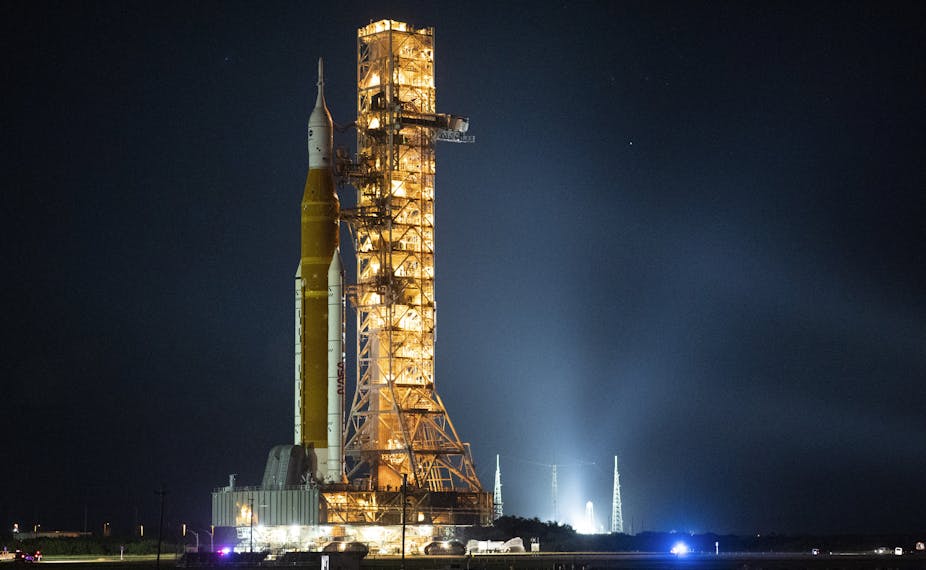
President Joe Biden is hosting the Second US-Africa Leaders Summit in mid-December 2022.
The focus will be on eight areas: economic engagement; peace, security and good governance; democracy and human rights; regional and global health security (including recovery from COVID-19 and pandemic preparedness); food security; climate change; diaspora ties; and education and youth leadership.
Of the 55 African heads of governments, 49 have been invited to the summit. Burkina Faso, Guinea, Mali and Sudan are currently on suspension from the Africa Union due to coups d’etats, hence they were not invited.
Western Sahara (officially called Sahrawi Arab Democratic Republic), though a member of the African Union, is not recognised by the US, so it was not invited. The US has no ambassador exchange with Eritrea, hence its exclusion.
The first edition of this summit was held in 2014, during President Barack Obama’s second term in office. The calling of this second summit may suggest that Africa is important to the current US administration.
It has no clear-cut theme, but a side-event on outer space is a welcome development.
For Africa, space is one of the flagship programmes of Agenda 2063, while for the US, space is a critical domain as a degradation or denial of access to its satellite infrastructure would impact heavily on its national security, economy and public livelihood.
It is therefore important to align the priorities and interests of the US and Africa in order for the planned meeting to be fruitful.
Expectations from the US-Africa Space Forum
The Space Forum has three main themes for discussion: climate crisis; promoting responsible behaviour; and strengthening cooperation on science and commercial space activities.
These themes are in line with the US space policy priorities document released about a year ago.
As stated in the document, the two priorities of the US in space are:
- maintaining a robust and responsible US space enterprise
- preserving space for current and future space generations.
The US wants to maintain its leadership in space, develop space capabilities to respond to climate change, and boost its commercial space sector.
It’s also important to the US to defend its national security interests and secure access to space for its future generations.
It does not appear that Africa is contributing to the agenda of the planned Space Forum. Nevertheless, Africa’s approach and contributions need to be hinged on the African Space Policy and Strategy.
Africa’s overarching goal is to meet the developmental needs of the continent while still being a responsible and peaceful user of space. Its core priorities include socioeconomic development; access to space-derived data, products and services; development of the local space industry; corporate governance and management; continental space coordination; and beneficial partnerships.
Aligning interests
The agendas of the US and Africa for space are not divergent; they are only internally focused. Efforts are therefore needed to align their respective policies and actions for mutual benefit.
For example, climate change affects Africa’s social, economic and environmental needs. So it’s not just a priority of the Biden administration.
The 27th Conference of Parties (COP27) of the United Nations Framework Convention on Climate Change (UNFCCC) in Sharm El-Sheikh, Egypt, highlighted that most of the gaps in observation and data are in developing countries.
With the help of space and satellite technology, these gaps can be filled. Hence satellites form the core of the Global Climate Observing System.
Space technology also offers tools for climate mitigation and adaptation. Knowledge and technology sharing are therefore necessary to fill the gaps in developing countries.
Secondly, Africa has committed to being a “responsible and peaceful user of outer space”. This means that African countries commit to not taking actions that will affect the ability of other countries to operate in space.
Hence, global efforts at promoting responsible behaviour in space and space sustainability should be embraced.
Discussions on African countries signing up to the US-led Artemis Accords are likely to come up at the forum. The accords are a set of principles for participating in the US-led space exploration programme called Artemis.
African countries need to approach the framework with a clear understanding of the costs and benefits. The African Space Strategy also highlights space missions, technologies, operations and applications, that should guide them in their decision-making.
Regarding the third theme, supporting Africa’s commercial space industry is in the interest of both the US and Africa. The US needs to view African countries as allies and therefore remove barriers to knowledge sharing, trade and exports. Investment in Africa’s commercial space sector should be discussed at the summit.
Furthermore, efforts should be made to strengthen linkages and networks across universities and research institutions. This should be discussed at the forums on education, youth and diaspora engagement.
Beyond the Space Forum
There are several potential areas for US-Africa space partnership, particularly in the focus areas of the African space programme: Earth observation; satellite communication; satellite navigation; and astronomy.
The US-Africa Space Forum could be made a permanent platform for exchanges, policy alignments and trade facilitation. This effort will enhance overarching US-Africa relations.![]()
Etim Offiong, Scientific Officer, Obafemi Awolowo University
This article is republished from The Conversation under a Creative Commons license.


